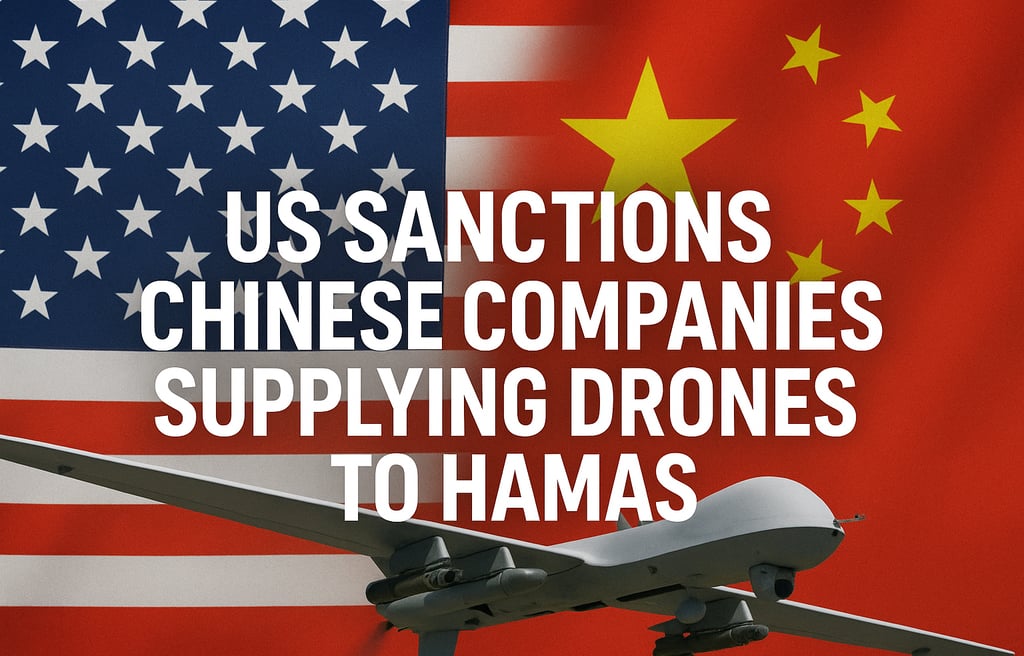US Sanctions Chinese Companies Supplying Drones to Hamas | Latest October 2025 News
On October 8, 2025, the US sanctioned 15 Chinese firms for supplying drone components to Hamas and Houthis, raising major global security concerns.
Raja Awais Ali
10/8/20252 min read


US Targets Chinese Companies Supplying Drone Components to Hamas
October 8, 2025 — The United States has added 15 Chinese companies to its trade blacklist, accusing them of supplying drone components to Iran-backed groups, including Hamas and the Houthis.
The move, announced by the U.S. Department of Commerce, is part of broader sanctions targeting firms from China, Turkey, and the United Arab Emirates allegedly involved in facilitating the transfer of weapons to terrorist organizations.
U.S. officials stated that the sanctions aim to disrupt international supply chains that help terrorist groups acquire advanced weaponry. The restrictions primarily bar these companies from accessing American technology and components that could enhance their military capabilities.
Among the targeted entities, ten Chinese companies are accused of providing armed drones to Houthi rebels in Yemen, while five others are linked to drones seized by the Israeli military during Hamas’s October 7, 2023 attacks, which killed around 1,200 people.
In response, Chinese authorities rejected the allegations, insisting that their companies operate in full compliance with international law. Beijing described the U.S. measures as unfair and politically motivated, accusing Washington of interfering in China’s internal affairs and warning that the sanctions could strain global trade relations.
These actions reflect Washington’s ongoing “maximum pressure” policy aimed at preventing Iran and its regional allies from obtaining advanced military technologies. The U.S. had previously imposed similar restrictions on Chinese firms accused of supplying drone engines to Russia, signaling its determination to curb support for hostile actors worldwide.
Analysts note that the latest sanctions could shape new international norms around the trade and transfer of defense technologies. While China continues to reject these measures, they underscore the U.S. commitment to countering terrorist financing and arms networks.
The sanctions are expected to place economic pressure on the affected firms and limit the flow of sophisticated weaponry to militant organizations.
Globally, these measures send a strong message that the United States maintains a firm stance against terrorism and will act decisively against networks and nations that enable such activities. Going forward, these sanctions may influence defense trade relations and reduce the operational capacity of armed groups in conflict zones.
Stay informed with the latest national and international news.
© 2025. All rights reserved.